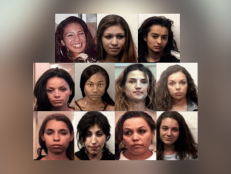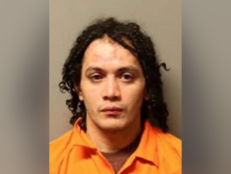Podcast Helps Free Two Innocent Men Convicted Of Teenager’s 1996 Shooting Death
“You never think something like that is going to happen to you,” Darrell Lee Clark says of how he and Cain Joshua Storey were forced to spend 25 years behind bars.
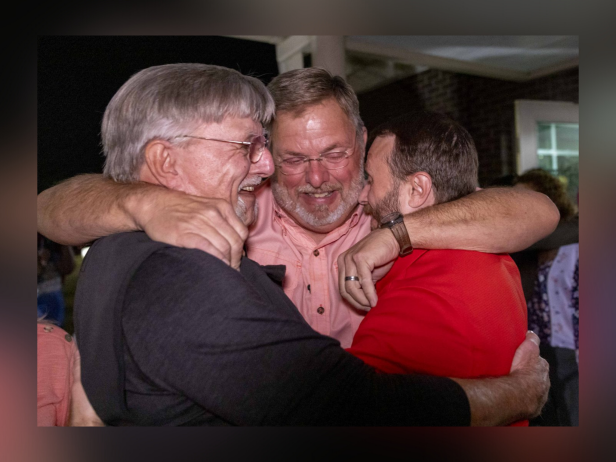
Georgia Innocence Project
Two men charged and convicted as teenagers of the 1996 fatal shooting of a boy in Georgia recently won their freedom after decades in prison thanks to a pair of podcasters who uncovered new evidence in the case.
One evening in October 1996, Brian Bowling, 15, was talking with his girlfriend on the phone and told her he had been playing Russian roulette with a gun his best friend, Cain Joshua Storey, brought to his Rome home, according to a Georgia Innocence Project (GIP) report.
During the phone call, Bowling’s girlfriend heard a single shot fired. An investigation initially determined Bowling died from a self-inflicted gunshot wound to the head and his best friend, Storey, was charged with manslaughter.
At the urging of Bowling’s family, however, detectives later took a second look into the shooting.
“As part of that investigation, police interviewed a woman who lived near the Bowling’s home,” the GIP said in the report. “She told police that she had hosted a party months after the shooting death of Bowling and that it was attended by both” Storey and his friend, Darrell Lee Clark.
At the party, the witness alleged at the time, Clark and Storey “explained how they had planned the murder of Bowling because he knew too much about a prior theft that Storey and Clark had committed,” the report stated.
As a result of the new witness’ claims, the manslaughter charge against Storey, then 17, was upgraded to murder. His friend, Clark, also 17, was arrested as a co-conspirator in the case and charged with murder, according to the GIP.
At trial, a second witness seemed to claim he saw Clark the evening of the shooting running through the victim’s front yard.
Based in part on the two witnesses’ testimonies, Storey and Clark were each convicted of murder and conspiracy to commit murder and sentenced to life in prison in 1998.
Over two decades after their convictions, Storey and Clark got a lifeline when the creators of a true-crime podcast called “Proof” looked deeper into the case.
The show’s creators, Susan Simpson, of the “Undisclosed” podcast, and Jacinda Davis, of ID’s Evil Lives Here, were able to show the damning testimony of the two key witnesses who testified against Storey and Clark didn’t stand up to scrutiny.
The podcasters found the party hostess, and she claimed investigators on the case allegedly coerced her into testifying against the accused by threatening her children would be taken from her care if she didn’t cooperate, according to the GIP report.
The second eyewitness was hearing- and speech-impaired and the podcasters discovered he was confused by a court sign language interpreter during the trial. The GIP reported the second witness believed at the time he was testifying about a completely different shooting.
Simpson and Davis’ discoveries were so compelling that they convinced Bowling’s family of the now 43-year-old co-defendants’ innocence. The family then advocated for the men’s release from prison.
“The Bowling family suffered a great loss when Brian died. Their strength, open minds, willingness to question information that has been presented as ‘fact,’ and quest for the truth is inspiring,” Georgia Innocence Project Senior Attorney Christina Cribbs said.
As a direct result of Simpson and Davis’ reporting, Storey and Clark were released from custody a year and a half after the podcasters first began looking into the case.
“You never think something like that is going to happen to you,” Clark said of his exoneration. “Never would I have thought I would spend more than half my life in prison, especially for something I didn’t do. I’m just glad the truth finally came to light after 25 years. I’m so thankful for the Georgia Innocence Project and ‘Proof’ podcast for what they did. Without them, I would still be in prison.”
“Proof” creator Simpson told The Washington Post of the investigative true-crime medium, “What podcasting can do is bring in a fresh set, or independent set, of eyes … that can go uncover important new evidence and put that evidence in context and make that info available to people who can make a difference because of it.”

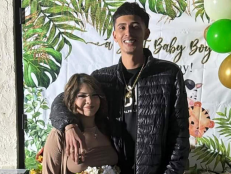



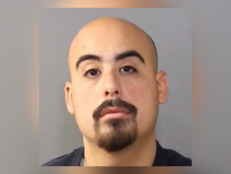
![Stacy Arthur [left] and James "Jim" Arthur [right] pictured smiling.](http://investigationdiscovery.sndimg.com/content/dam/images/investigationdiscovery/crimefeed/legacy/2023/01/the-playboy-murders-S1-E1-all-that-glitters.png.rend.hgtvcom.231.174.suffix/1673991794237.png)
